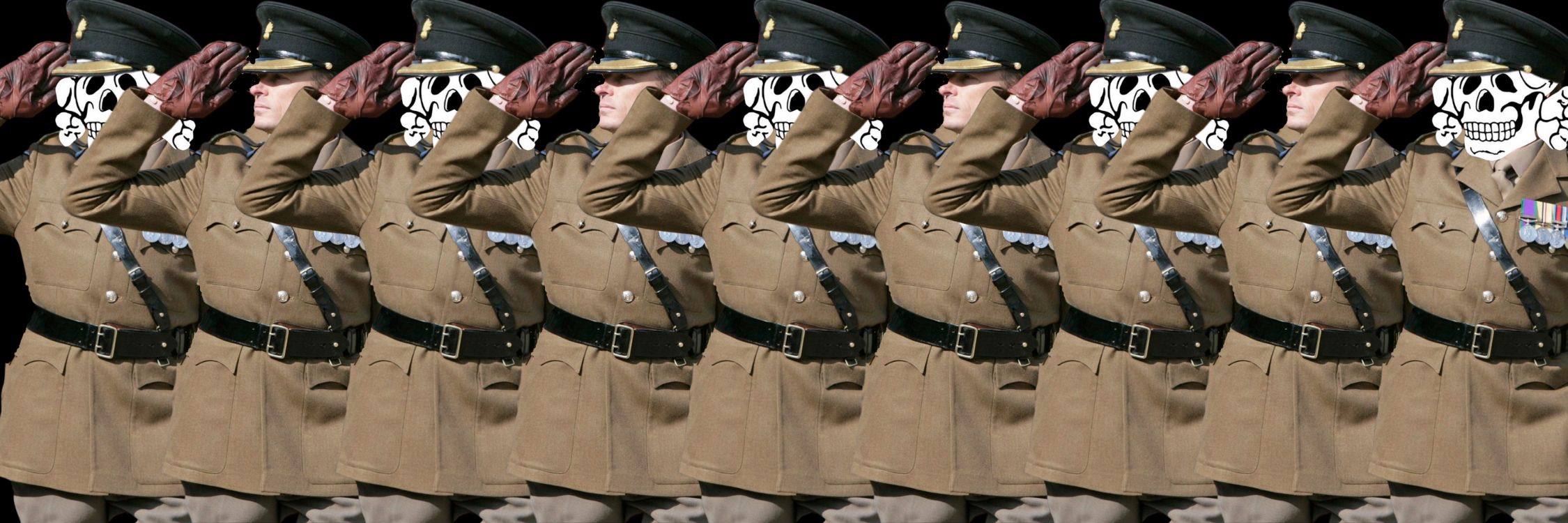The new Chief of the British Army – Roland Walker – announced that Britain must be prepared to “fight a war in three years”.
The anticipated war will largely be directed against Russia, China, Iran, and North Korea, whom George Robertson – former General Secretary of NATO – described as a “deadly quartet” in recent days.
This “quartet” has been emphasised due to the growing level of co-operation and trade between some of these states during the Russia-Ukraine War. Iran has also been singled out due to “fears” that they will develop nuclear weapons.
So why does this mean that Britain must prepare itself for war? According to Walker, Britain has “an absolute urgency to restore credible hard power in order to underwrite deterrence”.
In the name of deterring war, this new chief has committed to “double [Britain’s] fighting power in three years and triple by the end of the decade”.
Veiled in diplomatic language, the real reason for this commitment has been made clear in the above sentence – to reassert Britain’s interests, with an army to back it up. In essence, to make Britain more of a threat.
In a speech given on 16 July 2024, Chief of the Defence Staff, Tony Radakin, said that the ambition is “an Army that is more lethal”. Indeed, he went further to state that his vision is a British Army that challenges its NATO allies in “push[ing] the boundaries of technology and lethality”.
Of course, the reality is that these arms races and build-ups are simultaneously what makes war inevitable.
Radakin spoke positively of how British military policy enables “270,000 British jobs and £6 billion of exports”. This does not include the indirect profits from having the British Armed Forces ready to enforce British interests.
Within these interests are those of military industries who have been making a fortune from the Russia-Ukraine War, and who are set to profit from any future war. The imperialist economic competition between various states in turn sets the scene for future wars.
Of course though, Walker speaks of deterrence and the role of the British armed forces in deterring threats of war, such as potentially nuclear-armed nations.
Yet the reality is that Britain has no interest in intervening or ending actual wars caused by actual nuclear-armed nations, as can be seen in their attitude towards Palestine. The Zionist state is a nuclear-armed state that has been waging a genocidal campaign against Palestinians for months, and yet the response of the British military is to dispatch fighter-jets to protect “Israel” and provide them with military intelligence.
Of course, the expansion of the British Army in its drive for “lethality” will not come cheap. Ranakin acknowledged that “Politics responds to positive reasons to invest. And the more you do and the better you do it, the more you make the case for a stronger and more capable Army, and so the ambition grows.”
In this sense we see the same cycle of militarism; invest in the army to expand it, use the army to justify the investment, and in so doing justify further investment, and the cycle continues.
Accordingly, the new Labour government intends to increase military spending to 2.5% of GDP (an increase of 0.3%, equivalent to roughly £8 billion). Yet seemingly the Labour government couldn’t bear the £2.5 billion to lift 500,000 children out of poverty caused by the two-child benefit cap.
There in short, we have the logic of militarism: more money for death, no money for life.
This fact makes Ranakin’s boast that the British Army provides “An immense contribution to social mobility” all the more grotesque. The same poverty enabled by such spending is the same poverty that drives thousands of teenagers to enlist in the British Army each year, many of them under 18
This story as a whole is not the first time in recent months that people in Britain have been told to prepare for war, to face up to the task and so on.
Only a couple of months ago did the Tories announce their intention of bringing back conscription. This ultimately comes as a long and drawn out process of mentally preparing people for war; and in so doing justifying the expansion of the British military. Indeed, the author of this article learned of this news by seeing it on a digital information-screen in Belfast City Centre.
This drive for militarism will no doubt impact Ireland, as it comes only months after a British report encouraged the expansion of the British military presence in the six counties.
For all the posturing from Britain and their lackeys in the Irish media about “international threats”, there is no greater threat to peace in Ireland than a British Army bent on “lethality”.
It is vital that young people across Ireland resist this militarism as it creeps through all aspects of life; in our schools, our universities, our communities, and our workplaces.

